Uncategorized
-
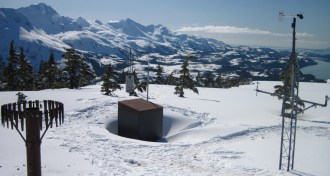 Earth
EarthFaulty thermometers exaggerated western U.S. mountain warming
Defective thermometers used in snowpack and ecology research overstated warming in western U.S. mountains.
-
 Animals
AnimalsMountain migration is a roller coaster for bar-headed geese
Bar-headed geese rise and fall to match terrain below them when migrating over the Himalayas.
-
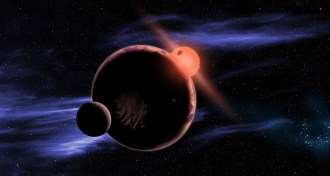 Astronomy
AstronomyRocky planets around cool stars may have Earthlike climates
Small, rocky planets that sit close to cool stars might be able to keep spinning, creating conditions hospitable to life.
-
 Life
LifeIn battle to shape immunity, environment often beats genes
The environment, especially microbes, shapes immune system reactions more than genes do.
-
 Animals
AnimalsEarth’s magnetic field guides sea turtles home
Over 19 years, geomagnetic fields changed slightly and so did loggerheads’ nesting sites.
By Julia Rosen -
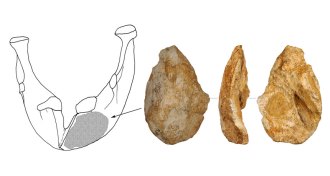 Archaeology
ArchaeologyAncient bone hand ax identified in China
People may have dug up roots with the 170,000-year-old bone tool, the first found in East Asia.
By Bruce Bower -
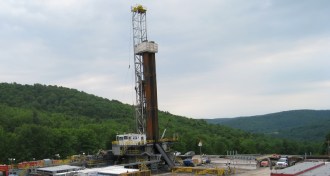 Environment
EnvironmentMore toxic chemicals found in oil and gas wastewater
High levels of ammonium and iodide found in wastewater from oil and gas exploration can harm aquatic life and form dangerous byproducts in tap water.
By Beth Mole -
 Science & Society
Science & SocietyScience’s self-criticism makes the enterprise stronger
Editor in Chief, Eva Emerson, considers the the tensions between statistical correctness and headline grabbing research discussed in this issue's part one of a two part feature examining the state of science in the age of publish-or-perish.
By Eva Emerson -
 Neuroscience
NeuroscienceFeedback
Readers discuss volcanoes and brain studies involving chocolate, and recommend some science-based options for game night.
-
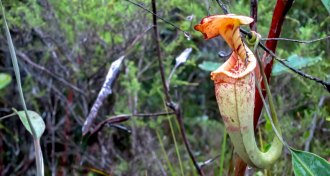 Plants
PlantsTricky pitcher plants lure ants into a false sense of security
Carnivorous pitcher plants exploit social lives of ants as scouts escape and inadvertently lead nest mates to death trap.
By Susan Milius -
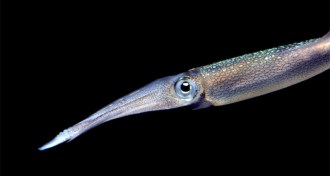 Animals
AnimalsSquids edit genetic directions extensively
In squids, RNA editing means that DNA often does not get the final say in which proteins are created.
-
 Science & Society
Science & Society12 reasons research goes wrong
Barriers to research replication are based largely in a scientific culture that pits researchers against each other in competition for scarce resources. Here are a few that skew results.